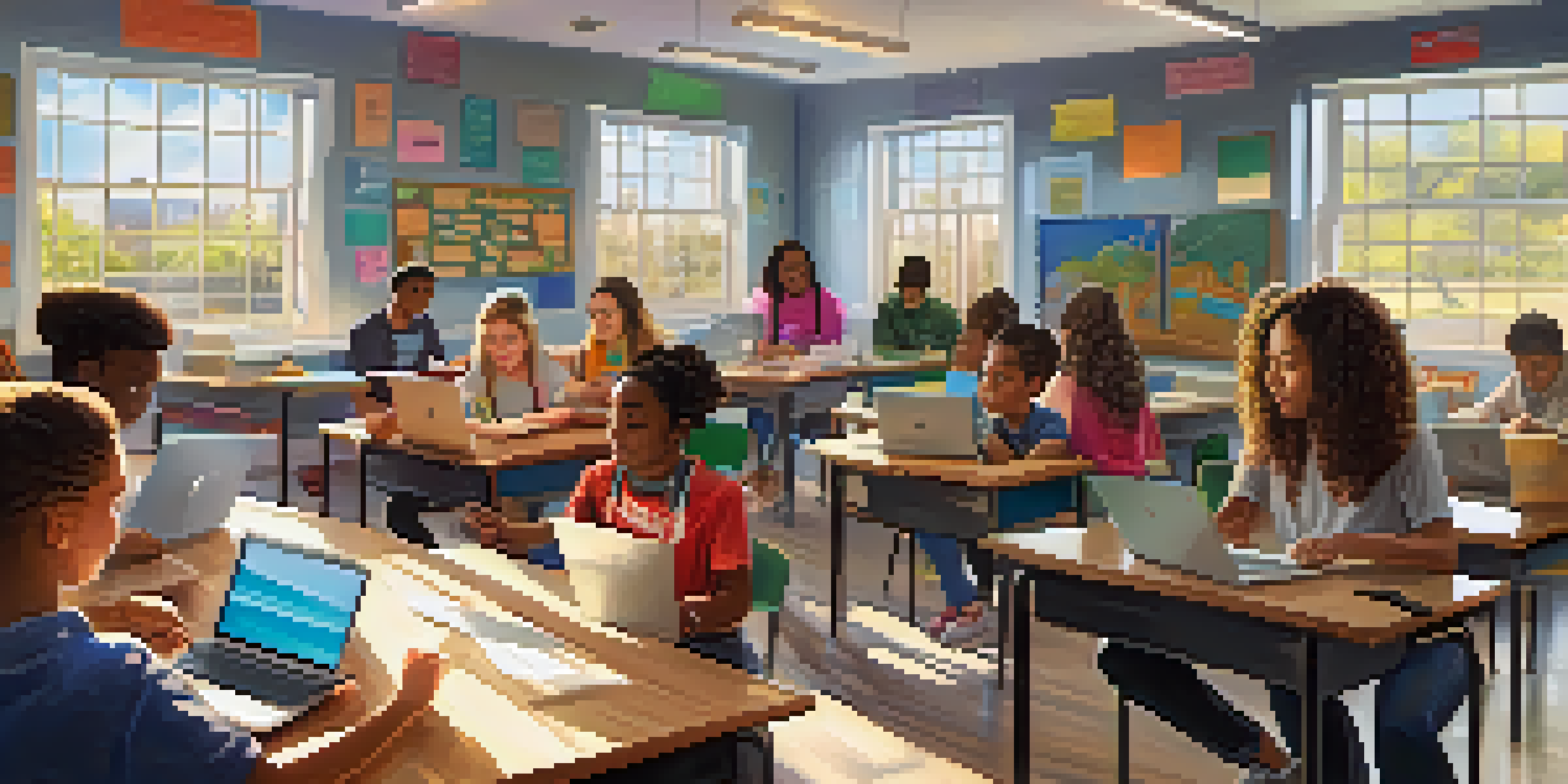The Role of Social Media in Enhancing Cultural Competence in Schools

Understanding Cultural Competence in Education
Cultural competence refers to the ability to interact effectively with people from diverse backgrounds. In educational settings, it involves recognizing and respecting different cultural perspectives and practices. This skill is essential for creating inclusive environments where all students feel valued and understood.
Social Media as a Tool for Cultural Exchange
Social media platforms like Twitter, Instagram, and Facebook serve as vibrant spaces for cultural exchange. Students can connect with peers from around the world, fostering a sense of global community. This exposure to varied cultural narratives enriches their understanding and appreciation of diversity.
Cultural Competence Enhances Education
Cultural competence is essential in education, fostering inclusive environments where all students feel valued.
Building Empathy Through Shared Stories
One of the powerful aspects of social media is the ability to share personal stories and experiences. When students share their own cultural backgrounds or learn about others through posts and videos, they develop empathy. This storytelling fosters a deeper connection and understanding among students from different cultures.
Promoting Awareness of Global Issues
Social media is a powerful platform for raising awareness about global issues that affect various cultures. Campaigns and movements often gain traction online, bringing attention to topics such as social justice, environmental concerns, and human rights. When students engage with these issues, they can develop a more nuanced understanding of the world around them.
Social Media Facilitates Cultural Exchange
Social media serves as a vibrant platform for students to connect globally, enriching their understanding of diverse cultures.
Encouraging Collaborative Learning
Through social media, students can collaborate on projects that address cultural themes or global challenges. Platforms facilitate discussions and brainstorming sessions that can lead to innovative solutions. This collaborative learning approach not only enhances cultural competence but also prepares students for teamwork in a diverse workplace.
Navigating Cultural Differences Online
While social media offers numerous benefits for cultural competence, it also presents challenges. Students must learn to navigate cultural differences and potential misunderstandings that can arise in online interactions. Educators can play a vital role in guiding students on how to communicate respectfully and thoughtfully in diverse online spaces.
Empathy Grows Through Shared Stories
Sharing personal experiences on social media helps students develop empathy and deeper connections across cultures.
Creating Safe Spaces for Dialogue
Schools can leverage social media to create safe spaces for dialogue about cultural issues. This can be achieved through moderated groups or forums where students can express their thoughts and experiences. Such environments encourage open conversations, helping students feel secure in sharing their perspectives.
The Future of Cultural Competence in Schools
As social media continues to evolve, so too will its role in enhancing cultural competence in education. Schools that embrace these tools can better prepare students for a multicultural world. By fostering connections and understanding through social media, educators can help cultivate a generation that values diversity and inclusivity.